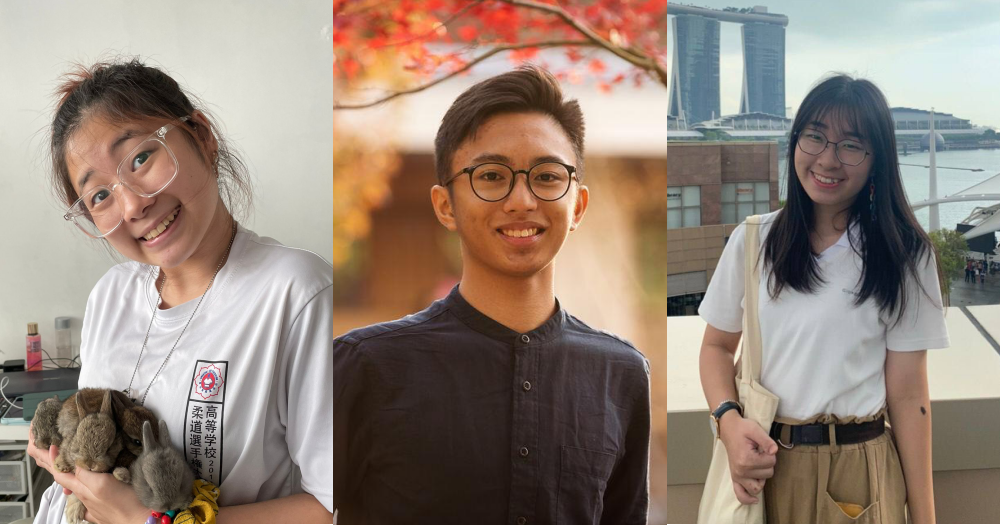A job in the healthcare sector can be a fulfilling one.
Watching a patient get better and better every day, and finally get discharged after they’ve recovered.
Yet we’ve also seen — especially during the Covid-19 pandemic — that workers in the industry have to be prepared for long, strenuous hours, patients who may be hard to work with and stay by patients whose conditions dwindle over time.
I spoke with three students, each embarking on their journey towards a job in the industry, who feel “called” to fulfill this sometimes thankless role in society.
My question to them: “Why?”
Taking care of her siblings gave her the push to become a nurse
Zelda Chew, 21, is pursuing a degree in nursing at the National University of Singapore (NUS) and hopes to eventually work as a pediatric nurse.
After years of taking care of her younger siblings and nephew, now aged six, she believes she has what it takes.
“I understand the responsibilities (of taking care of kids) and how parents want to protect their child,” she said.
“I feel I can relate to the parents when their child has been admitted into the hospital."
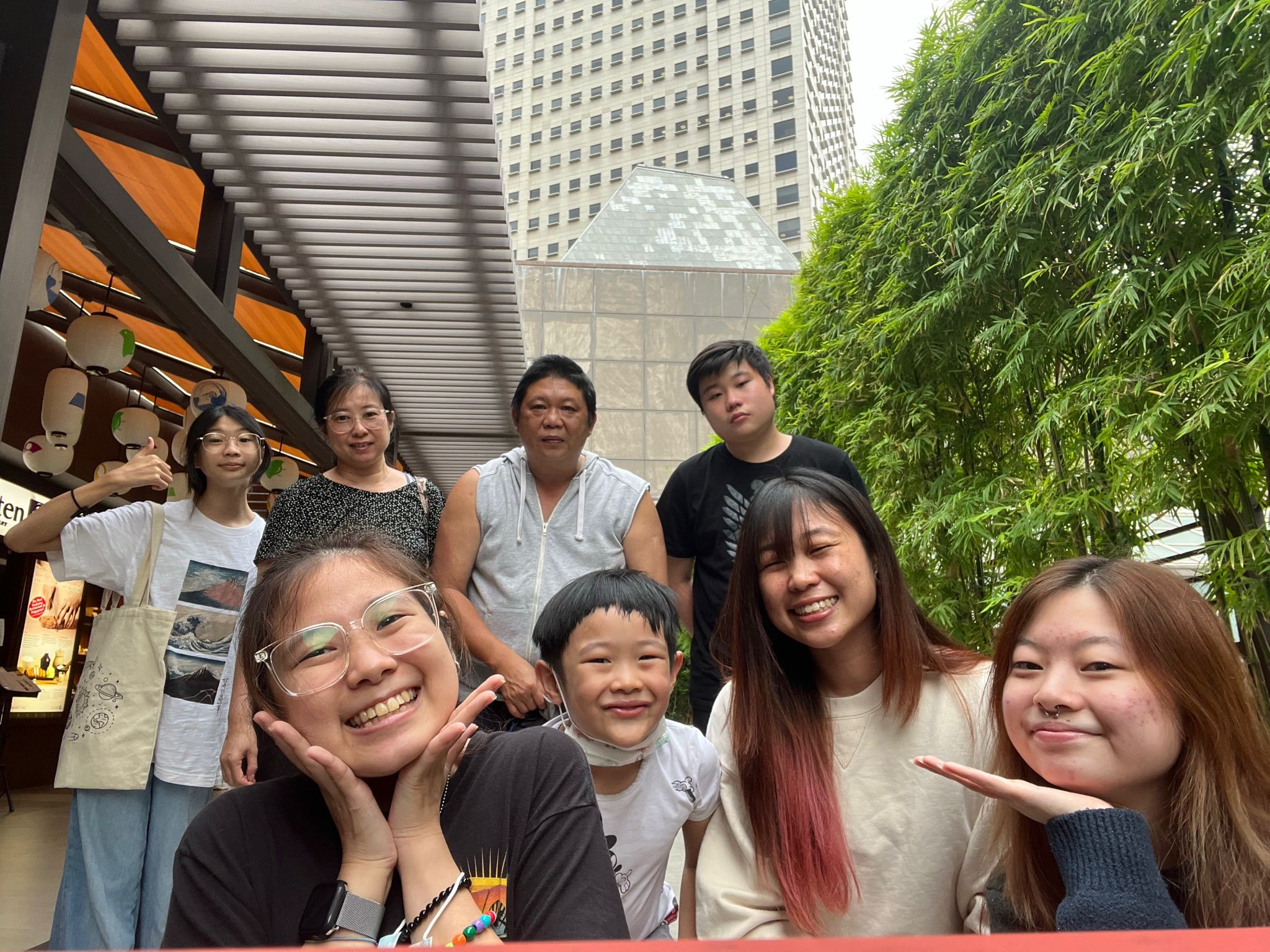 Zelda Chew (front row, first from left) with her family. Image courtesy of Zelda Chew
Zelda Chew (front row, first from left) with her family. Image courtesy of Zelda Chew
Growing up, Chew’s parents both worked full time. As the second oldest among four kids in her immediate family, Chew took on the responsibility of looking after her younger siblings and nephew.
That meant taking care of them when they were sick, helping them with their homework, and even talking to their teachers if there were any issues at school.
In the process, she discovered her penchant for communicating and connecting with her younger siblings and nephew.
“I will talk to them more so they will listen to me. And because I talk to my siblings more, I can learn how to care for them better too.”
This skill was further validated when her nephew fell ill with Covid-19. He refused to eat his medication and threw a fit. No one could persuade him to take his pills except Chew.
“They (younger kids) tend to listen to me,” she said confidently.
At just 21, Chew shoulders a lot of responsibility at home — something many her age may not be willing to do.
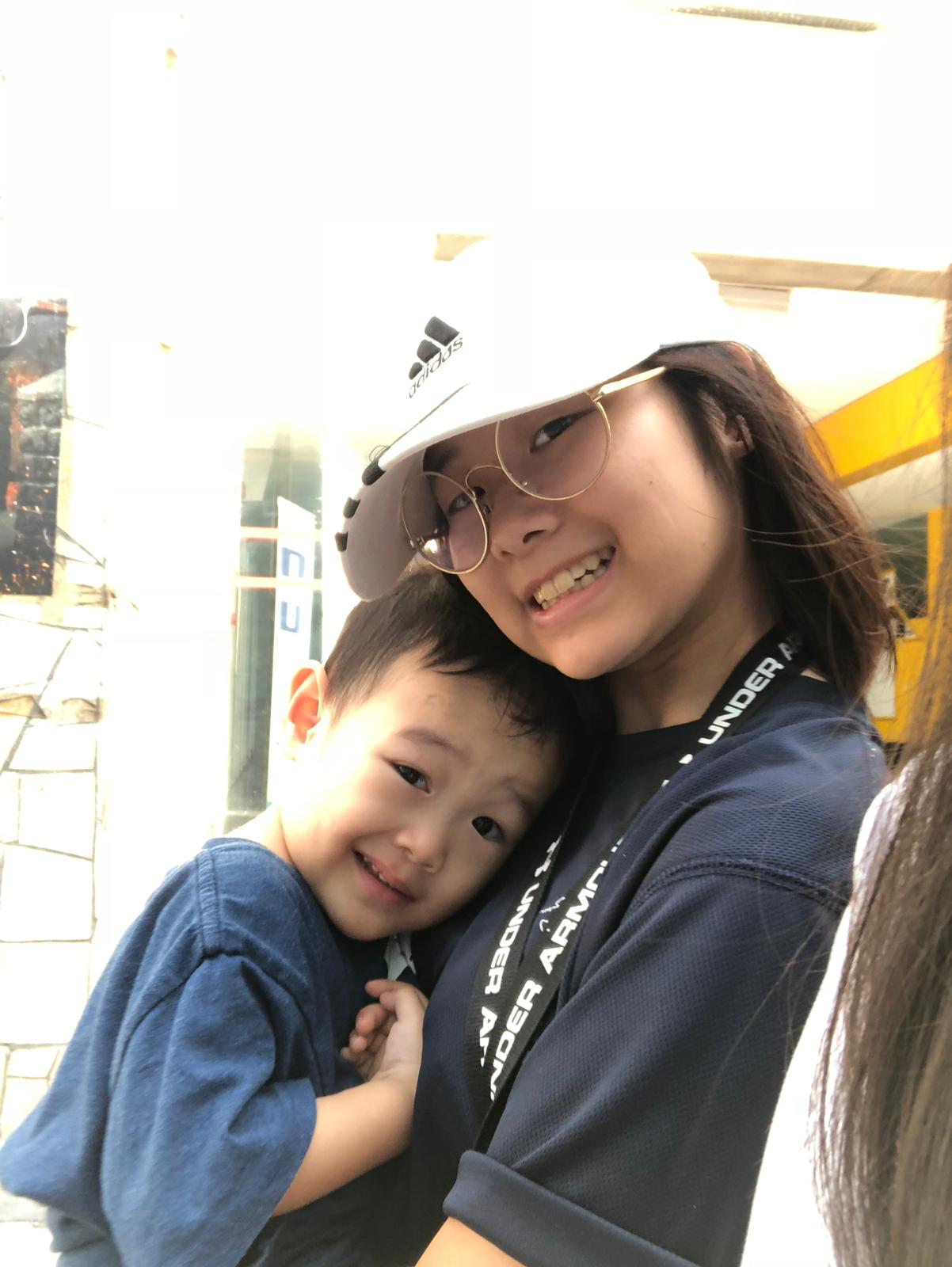 Zelda Chew with her nephew. Image courtesy of Zelda Chew.
Zelda Chew with her nephew. Image courtesy of Zelda Chew.
But for Chew, caring for her family is something she finds fulfilling.
“If I see them feeling better, then I’ll feel a sense of accomplishment that I’ve done something to make them feel better.”
She felt the same way during her internship as a Patient Service Associate at Raffles Hospital in March 2021 and Sengkang General Hospital this year.
From time to time, the nurses tasked her to help clean a patient’s wound or talk to a patient to calm them down. And after she’d done that, she’d think to herself:
“I really want to help others get better too.”
Inspired by nurses who tended to her when she was little
Lezanne Guo was six when someone asked her what she wanted to be when she grew up.
“I want to be a nurse, I want to be a nurse!” she recalls saying.
 Image courtesy of Lezanne Guo.
Image courtesy of Lezanne Guo.
The now 20-year-old Guo is in her second year at Ngee Ann Polytechnic, studying nursing and paving her way towards her dream career.
When Guo was four, she underwent eye surgery for her amblyopia (lazy eye). And for the next 12 years, she had routine checkups at the eye centre at KK Women's and Children's Hospital (KKH).
The clinic became a second home. She’d meet the same nurses, knew their names, talked to them, and sought comfort in them during her checkups.
She recalled how the nurses had to put a solution in her eyes to make them dilate to proceed with the checks.
It was an uncomfortable experience as the solution stung and her vision would be blurry for a couple of minutes after.
Because of that, Guo felt nervous every time she went for her appointments.
But the nervousness would melt away every time the nurses spoke to her and reassured her that everything was going to be okay.
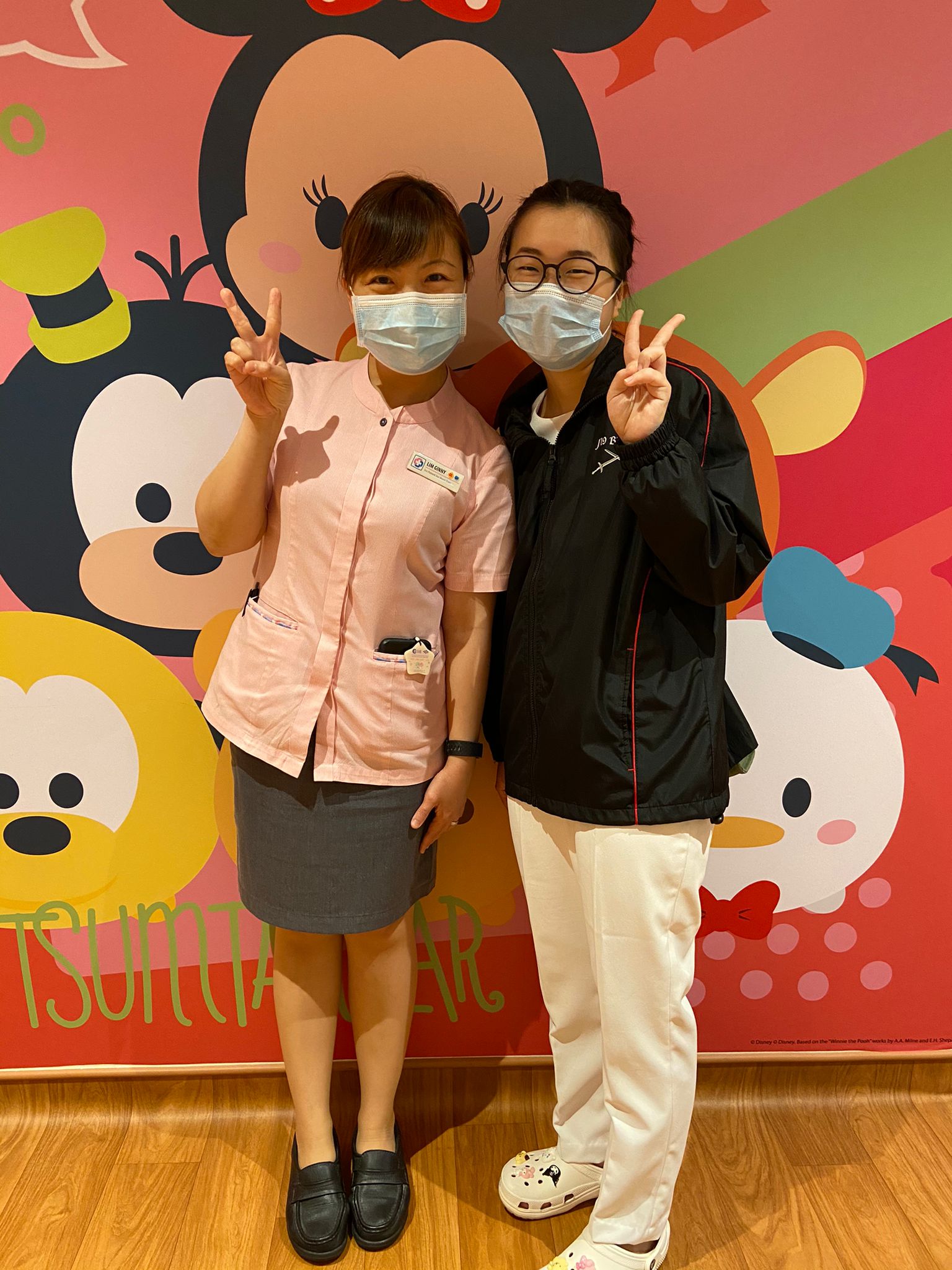 Lezanne (right) with her favourite nurse who took care of her when she was little. Image courtesy of Lezanne Guo.
Lezanne (right) with her favourite nurse who took care of her when she was little. Image courtesy of Lezanne Guo.
Her scariest moment at the hospital was when she was 13. During a routine checkup, one of the junior doctors suddenly said to Guo: “You have to do surgery again.”
Remembering how terrifying her last surgery was, the young teenager broke into tears and said: “I don’t want to go for another surgery.”
One of the nurses quickly intervened, referring her case to a separate consultant for a second opinion.
After some discussion, it was decided that surgery wasn’t necessary after all, much to the relief of Guo and her parents.
In that moment, Guo recalled, that nurse was her hero.
A couple of years later, as a nursing intern at KKH, she visited the centre and was warmly welcomed back by the same nurses.
“You’re so big already! Do you remember her, the little girl last time?” they gushed to one another. “Wow, you are a nurse now!”
That visit brought all the memories of her trips to the hospital rushing back and reaffirmed her goal to be a nurse one day.
Helping the elderly get back on their feet
Fares Aqil Daniel Khalid is also kickstarting his journey towards a career in the healthcare sector.
He will be starting Physiotherapy studies at the Singapore Institute of Technology (SIT) in August this year.
The allied health discipline is a vocation that he was introduced to while accompanying his grandmother for her physiotherapy sessions as a kid.
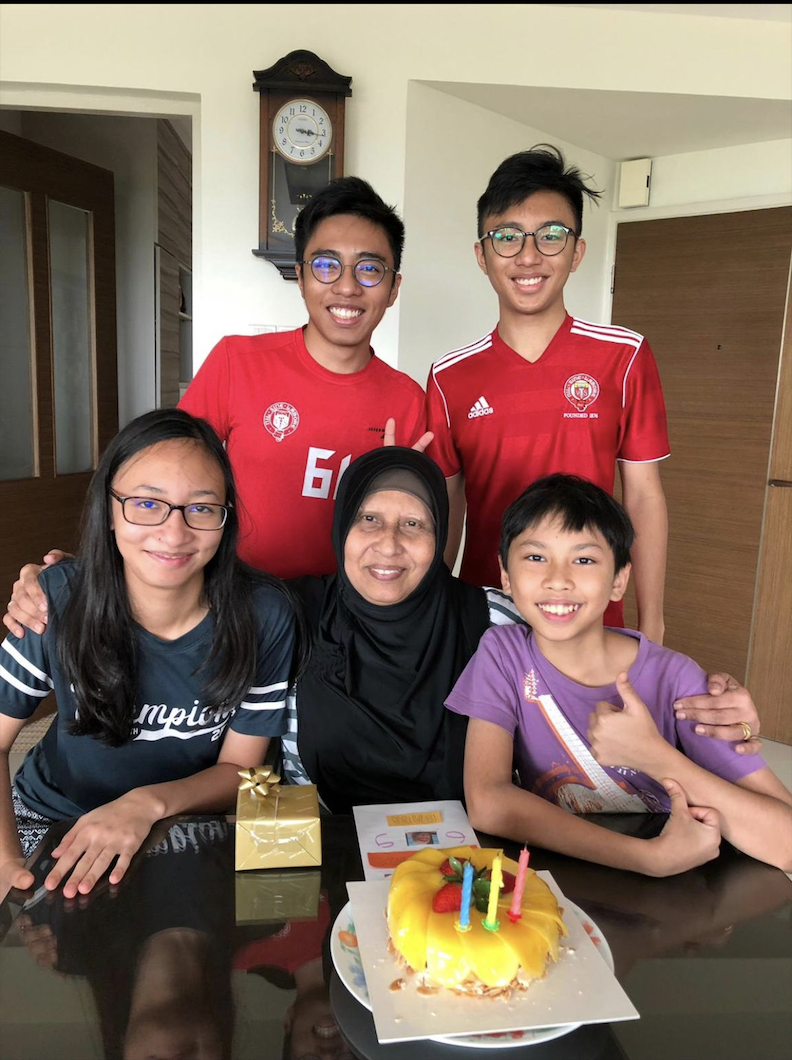 Fares Aqil Daniel Khalid (back row, right) with his siblings and grandmother. Image courtesy of Fares Aqil Daniel Khalid.
Fares Aqil Daniel Khalid (back row, right) with his siblings and grandmother. Image courtesy of Fares Aqil Daniel Khalid.
A big part of Aqil’s life when he was growing up was having his grandmother walk to school with him and his siblings each morning, picking them up after, and even taking them out for lunch afterwards.
However, all that walking soon became hard for his grandmother to do.
She was suffering from osteoarthritis in the knees, which is wear and tear of the cartilage between her joints.
Her gait slowed and she often needed to sit at a bus stop, or stop at the top of an overhead bridge for a break before continuing.
Eventually, she underwent knee replacement surgery and picking up her grandchildren from school became a thing of the past.
One day, Aqil’s mother asked him to accompany her and his grandmother to a doctor’s appointment to check on her knee.
As they walked into the clinic, he was perplexed.
“This is not a regular GP,” he thought to himself.
At that time, he only knew of doctors at his regular GP clinics but this one was different.
Aqil walked into the physiotherapy centre and noticed that there were all sorts of machines and saw elderly folks using them to walk, and stretch their arms and legs.
And as his grandmother began her session, he realised how difficult the job of a physiotherapist was.
“My grandma is quite stubborn,” he explained.
She didn’t want to cooperate with her physiotherapist and didn’t do her “homework” like the stretches she had to do at home.
Nonetheless, the physiotherapist was patient and persisted in trying to explain the purpose of the exercises, perhaps hoping to convince the elderly woman of their importance.
After spending more time with his grandmother, Aqil found out that she wasn’t enthused about her physiotherapy because she had lost hope that she’d be able to walk normally again.
“She's very trapped in her thoughts and she overthinks a lot. It just takes time for her to open up and understand why she needs to get better.”
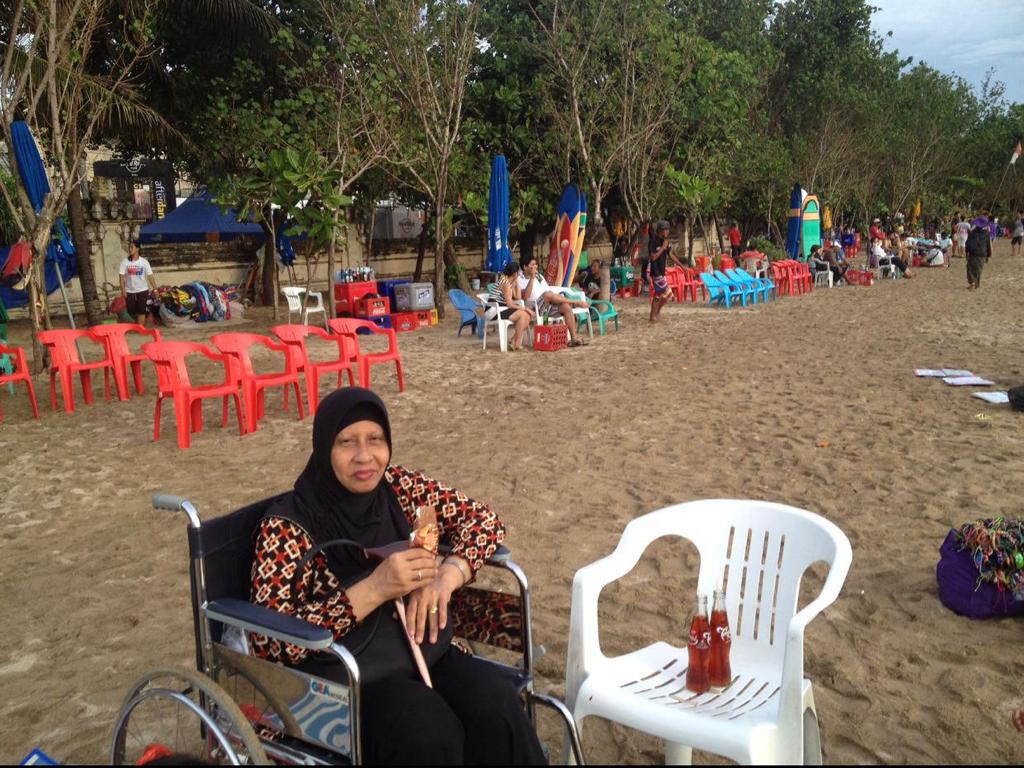 Fares Aqil Daniel Khalid’s grandmother. Image courtesy of Fares Aqil Daniel Khalid.
Fares Aqil Daniel Khalid’s grandmother. Image courtesy of Fares Aqil Daniel Khalid.
He believes that’s what a lot of elderly feel as well.
“Some elderly, they know that they're already in this condition and won't get any better,” he said.
“However, as a physiotherapist, sometimes you just need to make sure the condition doesn't deteriorate further.”
So, to convince his grandmother to start taking her physiotherapy sessions more seriously, Aqil got her to tell him stories about her life.
He’d say:
“Baba (grandmother), remember the times you used to walk us to school?
What were you like when you were younger? Did you go out a lot?
What was your favourite activity growing up?”
The goal was to remind his grandmother of the good times she had when they were younger and more able to move freely. It worked.
Slowly, he convinced his grandmother to go for short walks, get some exercise, and stretch her legs.
Now at the very start of his journey toward becoming a healthcare professional, Aqil hopes to use his experiences with his grandmother to connect with older folks and convince them that there’s still so much to live for if they get better.
Prepared for what’s to come
What became clear to me from my conversations with all three students was their deep-rooted sense of purpose when it came to their chosen vocation.
The last few pandemic-defined years have laid bare what insiders have always known — a career in healthcare is definitely no cakewalk.
It is notoriously demanding and comes with its own set of unique challenges.
Yet, Guo says she is prepared to dedicate her time and effort to helping others in need. She reminds herself of the kindness and care the nurses showed her and wants to pay it forward.
“I know one thing for sure is that as a nurse I have to dedicate my time and effort to the people. If all our healthcare heroes can do it, I believe I am able to do it too.”
Knowing that healthcare workers faced long hours during the pandemic won’t stop Chew from pursuing her studies in nursing either because she hopes having more nurses on board will eventually help lessen the workload.
“Even though the healthcare staff are overworked and had long working hours, it made me more determined to be there for them to support and help them along the way so I can see more patients recovering,” she explained.
Aqil felt the same way:
“I hope that by joining the workforce with my fellow batch mates, we will slowly be able to make a change and help one another to provide more efficient and quality service to patients.”
All three of them have received the healthcare scholarships awarded by MOHH to local undergraduates and graduates who have a passion for contributing to Singapore’s public healthcare sector.
Chew and Guo were awarded the Healthcare Merit Award to study nursing and Aqil received the Community Care Scholarship to pursue his PT studies.
For Guo, she’s looking forward to taking up the extracurricular programs that the scholarship provides. One of which is its basic communication languages packages that will aid her in communicating with non-english speaking patients in the future.
Chew added that with the scholarship, she’s able to study what she loves without worrying about the financial burden on her family.
This is the same for Aqil who has two other siblings enrolled in university as well.
“With the scholarship, I’ll be able to ease the burden of my parents, considering the costly tuition fees for university, and hopefully I can use this opportunity to excel in my studies and future career and be able to repay my parents back for everything they have done for me.”
The scholarship will see them through the whole of their tertiary education and after that, they will serve a four-year service at an assigned hospital after graduation.
While that seems like a big commitment, they all agree that being able to help in a patient’s recovery is in itself very rewarding and will keep them going – and that’s how they know that this is the industry they’re meant to be in.
The three will be receiving their awards at the Healthcare Scholarships Award Ceremony 2022 on Jul. 29.
The application window for Healthcare Scholarships will open in Sept 2022.
This is a sponsored piece by Healthcare Scholarships.
Top images courtesy of Zelda Chew, Lezanne Guo and Fares Aqil Daniel Khalid. Quotes edited for clarity.
If you like what you read, follow us on Facebook, Instagram, Twitter and Telegram to get the latest updates.
